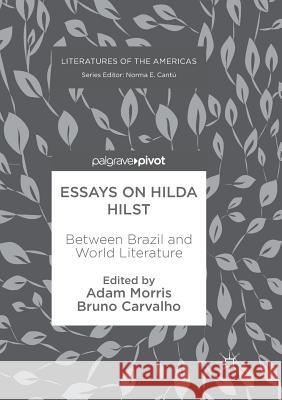Essays on Hilda Hilst: Between Brazil and World Literature » książka
topmenu
Essays on Hilda Hilst: Between Brazil and World Literature
ISBN-13: 9783030096182 / Angielski / Miękka / 2019 / 177 str.
Kategorie:
Kategorie BISAC:
Wydawca:
Palgrave MacMillan
Seria wydawnicza:
Język:
Angielski
ISBN-13:
9783030096182
Rok wydania:
2019
Wydanie:
Softcover Repri
Numer serii:
000473312
Ilość stron:
177
Waga:
0.23 kg
Wymiary:
21.01 x 14.81 x 1.02
Oprawa:
Miękka
Wolumenów:
01
Dodatkowe informacje:
Wydanie ilustrowane











